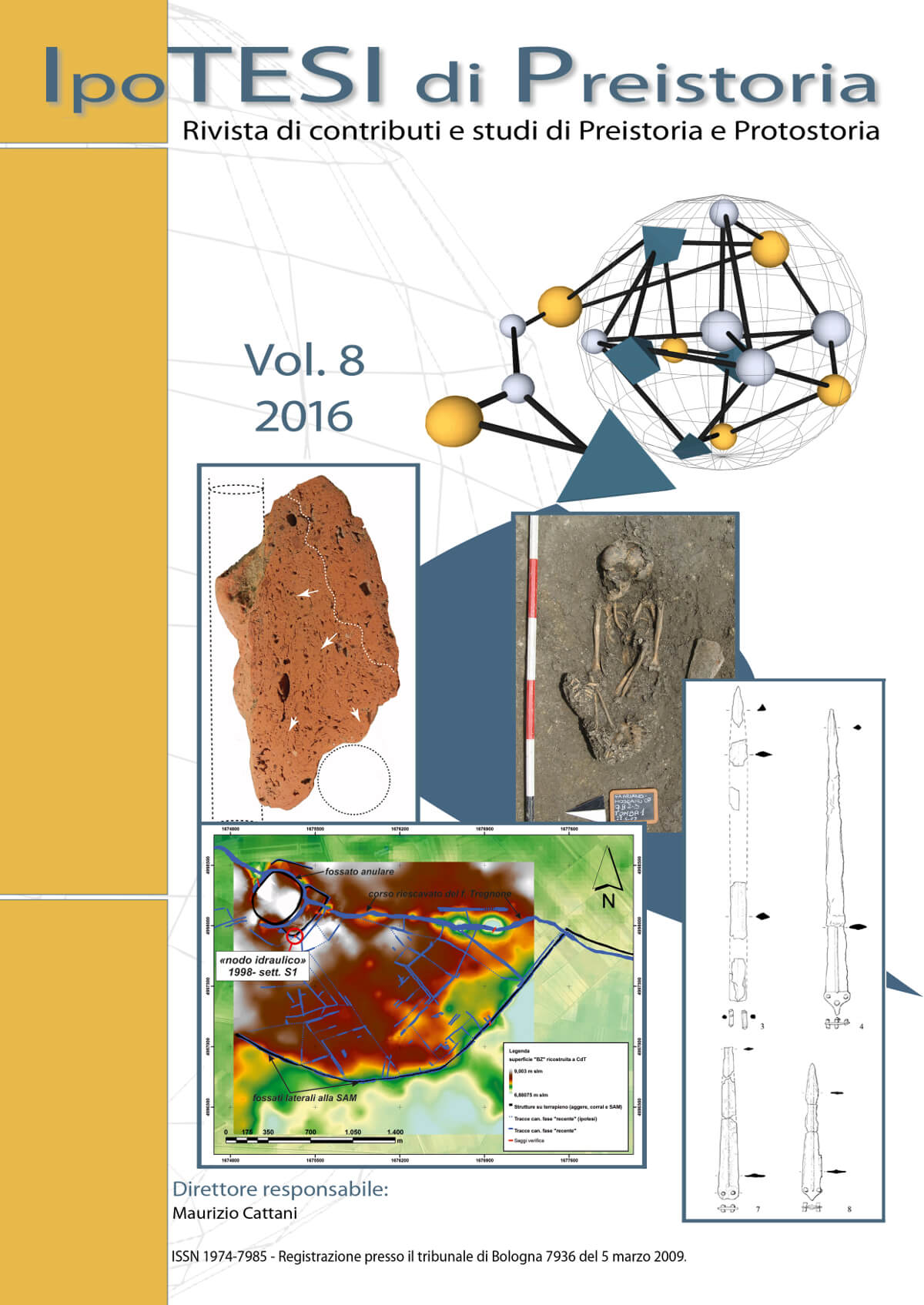From marls to "terremare". Etymological and "stratigraphic" analysis of a debated term
DOI:
https://doi.org/10.6092/issn.1974-7985/6486Keywords:
Terramare, marl, history of palethnology, terminologyAbstract
Since the last decades of XIX century, the term “terramare” denotes the Bronze Age settlement in the central Po plain and in recent scientific works it has been used as representative word to indicate the whole civilization of Middle and Recent Bronze Age. When Pigorini and Strobel in 1862 introduced this term they referred to the organic soil exploited as fertilizer connected to the marl well known in other european countries. This paper deals with the etymology of the term and, recovering old hypothesis advanced in early twentieth century, it suggests a different interpretation of his origin. Following the fortune of the term among all the scholars of the successful phase of research in XIX century, the papers concludes with a proposal of a well studied opportunity chosen by Luigi Pigorini to take advantage with a word new and pivot, but at the same time tied to solid and old roots.Downloads
Published
2016-12-21
How to Cite
Degasperi, N. (2016). From marls to "terremare". Etymological and "stratigraphic" analysis of a debated term. IpoTesi Di Preistoria, 8(1), 37–52. https://doi.org/10.6092/issn.1974-7985/6486
Issue
Section
Papers
License
Copyright (c) 2016 Nicola Degasperi
Copyright for articles published in this journal is retained by the authors, with first publication rights granted to the journal. The authors agree when submitting their work that it can be copied by anyone for noncommercial purposes but only if proper credit is given. Thus by virtue of their appearance in this open access journal, the articles have been declared free to use, with proper attribution, in noncommercial settings. All authors are responsible for the content of their work, including proper citation, attribution and usage permissions.
This journal is licensed under a Creative Commons Attribution NonCommercial 4.0 International License.
See also our Open Access Policy.
See also our Open Access Policy.





